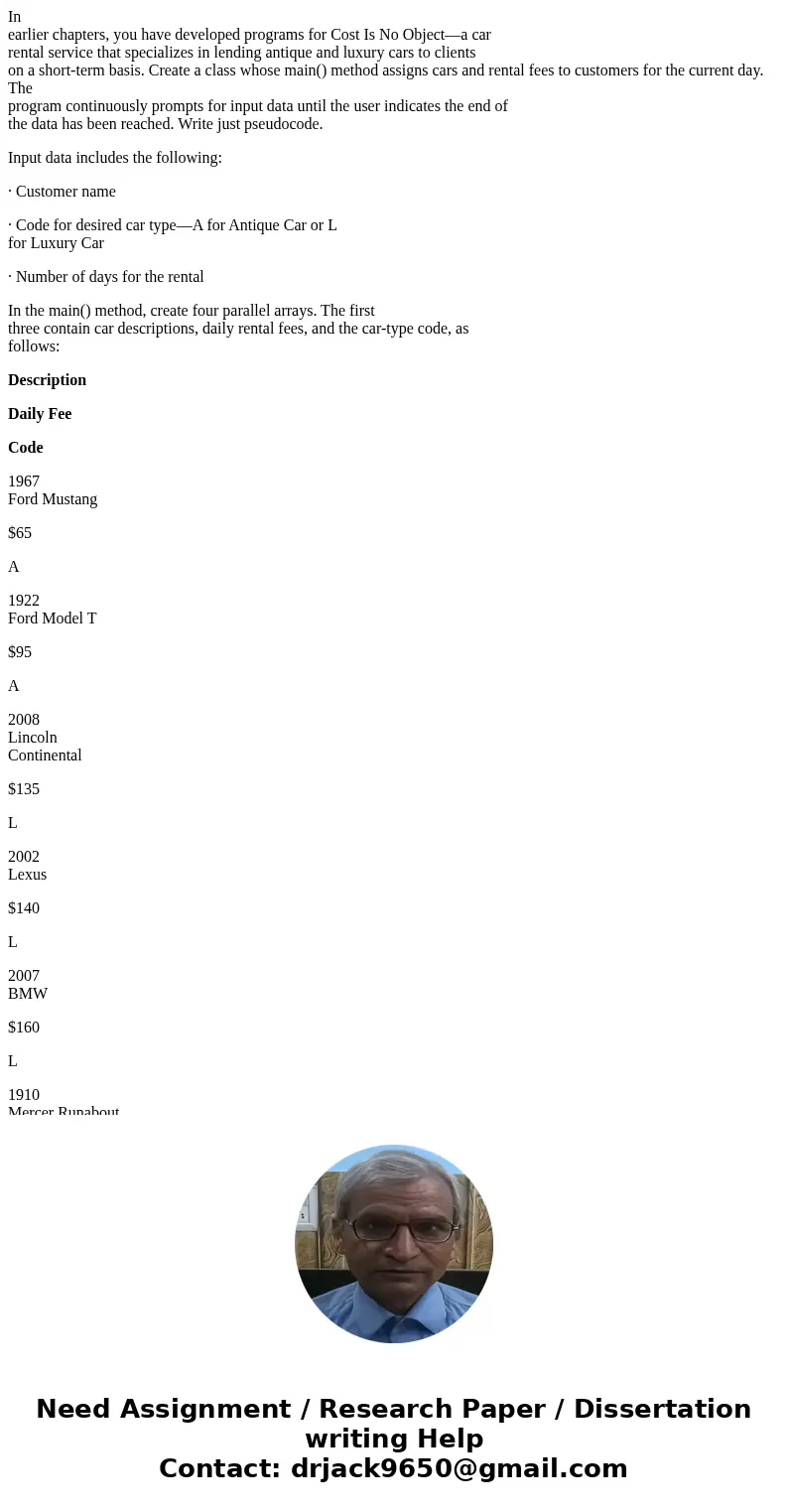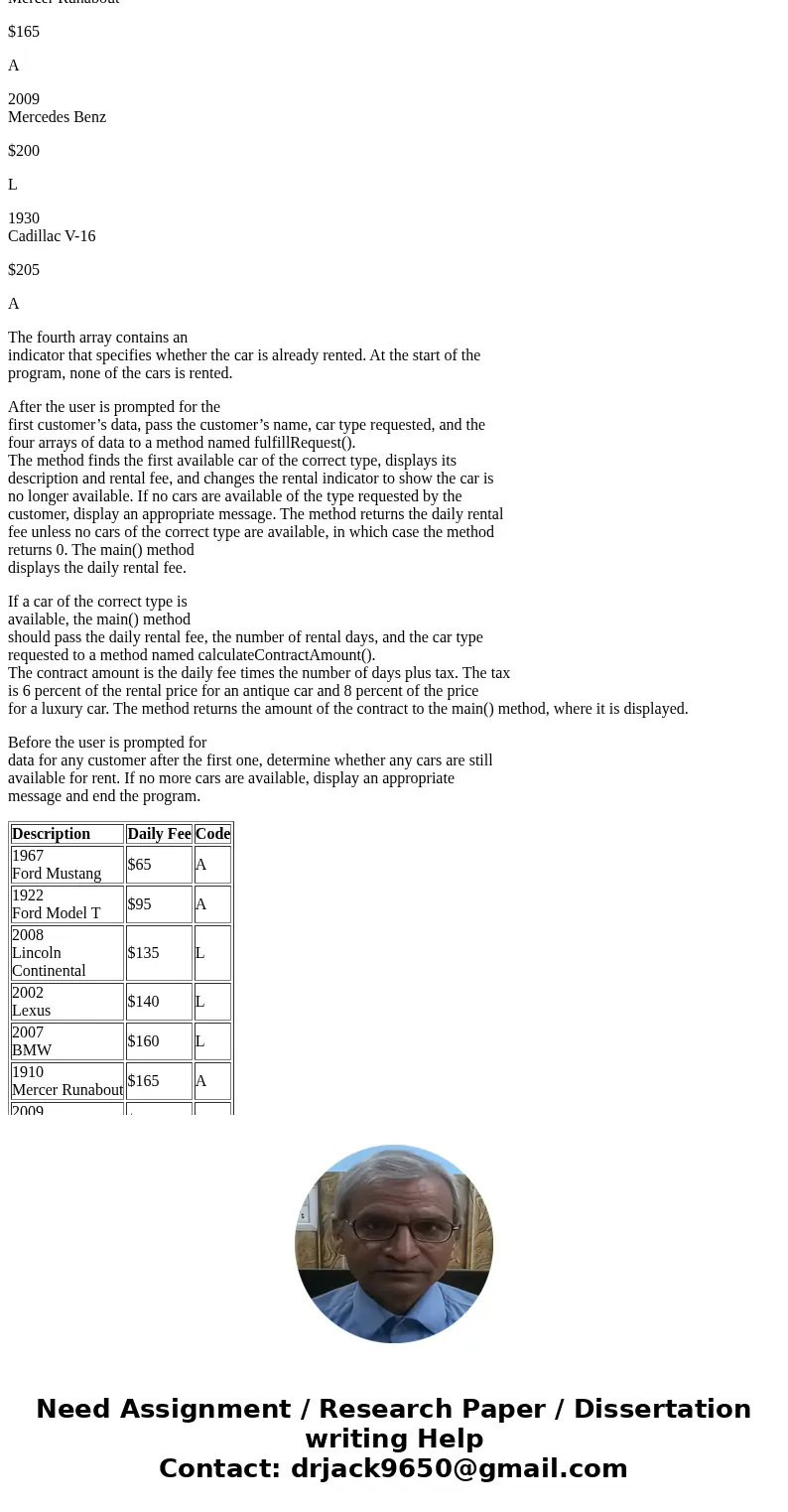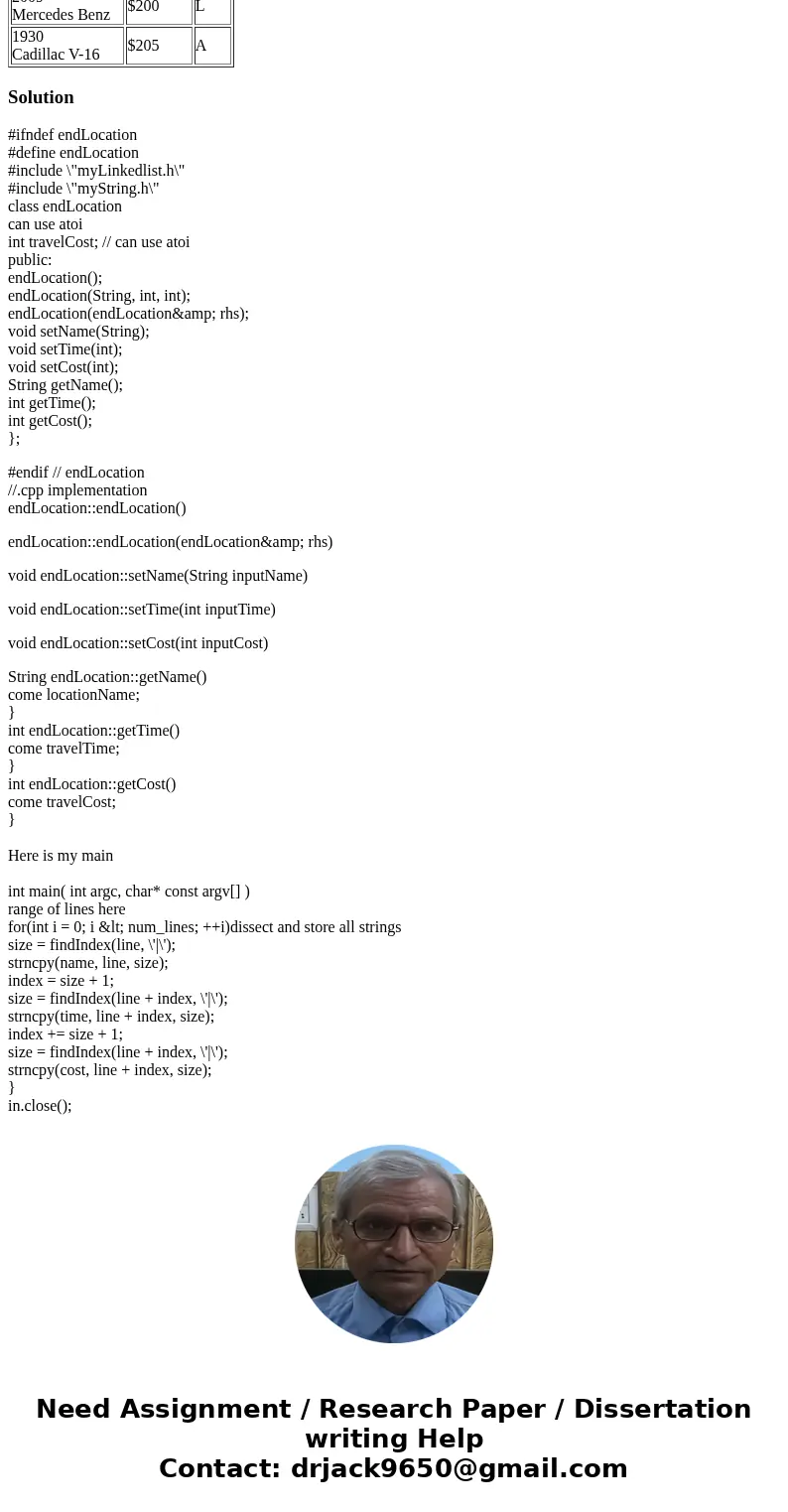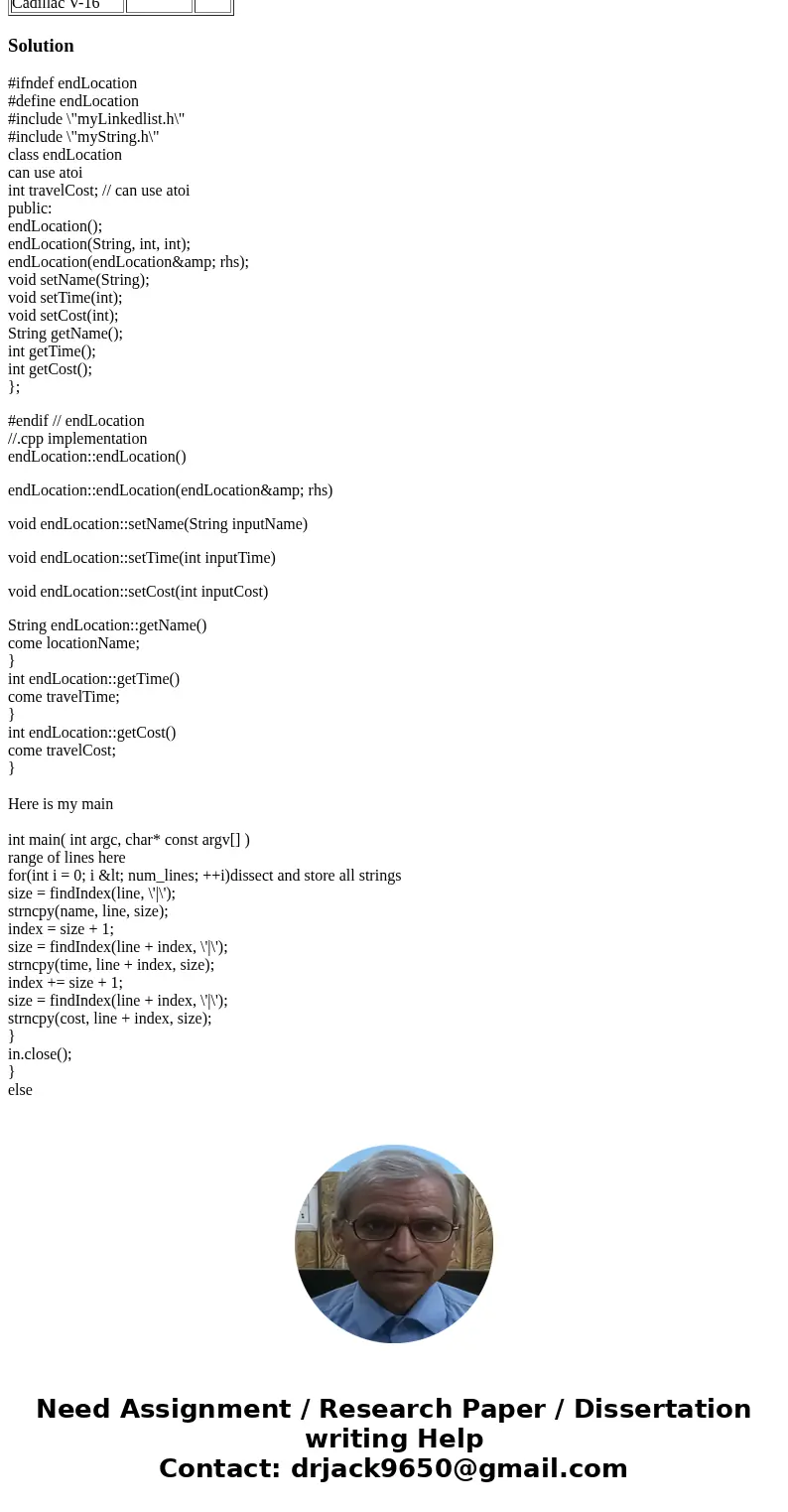In earlier chapters you have developed programs for Cost Is
In
earlier chapters, you have developed programs for Cost Is No Object—a car
rental service that specializes in lending antique and luxury cars to clients
on a short-term basis. Create a class whose main() method assigns cars and rental fees to customers for the current day. The
program continuously prompts for input data until the user indicates the end of
the data has been reached. Write just pseudocode.
Input data includes the following:
· Customer name
· Code for desired car type—A for Antique Car or L
for Luxury Car
· Number of days for the rental
In the main() method, create four parallel arrays. The first
three contain car descriptions, daily rental fees, and the car-type code, as
follows:
Description
Daily Fee
Code
1967
Ford Mustang
$65
A
1922
Ford Model T
$95
A
2008
Lincoln
Continental
$135
L
2002
Lexus
$140
L
2007
BMW
$160
L
1910
Mercer Runabout
$165
A
2009
Mercedes Benz
$200
L
1930
Cadillac V-16
$205
A
The fourth array contains an
indicator that specifies whether the car is already rented. At the start of the
program, none of the cars is rented.
After the user is prompted for the
first customer’s data, pass the customer’s name, car type requested, and the
four arrays of data to a method named fulfillRequest().
The method finds the first available car of the correct type, displays its
description and rental fee, and changes the rental indicator to show the car is
no longer available. If no cars are available of the type requested by the
customer, display an appropriate message. The method returns the daily rental
fee unless no cars of the correct type are available, in which case the method
returns 0. The main() method
displays the daily rental fee.
If a car of the correct type is
available, the main() method
should pass the daily rental fee, the number of rental days, and the car type
requested to a method named calculateContractAmount().
The contract amount is the daily fee times the number of days plus tax. The tax
is 6 percent of the rental price for an antique car and 8 percent of the price
for a luxury car. The method returns the amount of the contract to the main() method, where it is displayed.
Before the user is prompted for
data for any customer after the first one, determine whether any cars are still
available for rent. If no more cars are available, display an appropriate
message and end the program.
| Description | Daily Fee | Code |
| 1967 | $65 | A |
| 1922 | $95 | A |
| 2008 | $135 | L |
| 2002 | $140 | L |
| 2007 | $160 | L |
| 1910 | $165 | A |
| 2009 | $200 | L |
| 1930 | $205 | A |
Solution
#ifndef endLocation
#define endLocation
#include \"myLinkedlist.h\"
#include \"myString.h\"
class endLocation
can use atoi
int travelCost; // can use atoi
public:
endLocation();
endLocation(String, int, int);
endLocation(endLocation& rhs);
void setName(String);
void setTime(int);
void setCost(int);
String getName();
int getTime();
int getCost();
};
#endif // endLocation
//.cpp implementation
endLocation::endLocation()
endLocation::endLocation(endLocation& rhs)
void endLocation::setName(String inputName)
void endLocation::setTime(int inputTime)
void endLocation::setCost(int inputCost)
String endLocation::getName()
come locationName;
}
int endLocation::getTime()
come travelTime;
}
int endLocation::getCost()
come travelCost;
}
Here is my main
int main( int argc, char* const argv[] )
range of lines here
for(int i = 0; i < num_lines; ++i)dissect and store all strings
size = findIndex(line, \'|\');
strncpy(name, line, size);
index = size + 1;
size = findIndex(line + index, \'|\');
strncpy(time, line + index, size);
index += size + 1;
size = findIndex(line + index, \'|\');
strncpy(cost, line + index, size);
}
in.close();
}
else




 Homework Sourse
Homework Sourse